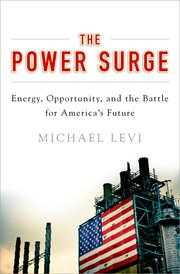As I write about energy each day, I often wonder what the trade-offs or consequences will be if a technology takes off, or even if it fails. How will it, if at all, alter America’s energy landscape? From my point of view, we are a country in fear of change and in fear of taking  action. We are a country that spends more time worrying about what celebrities wore to an award show and when the next iPhone will be hit the streets, then worrying about the underlying causes of recessions (many economists blame oil prices) and what the consequences are of the decisions made, or more often than not, not made, by our elected officials.
action. We are a country that spends more time worrying about what celebrities wore to an award show and when the next iPhone will be hit the streets, then worrying about the underlying causes of recessions (many economists blame oil prices) and what the consequences are of the decisions made, or more often than not, not made, by our elected officials.
So I was very excited when I read, “The Power Surge: Energy, Opportunity, and the Battle for America’s Future,” by Michael Levi who is the Senior Fellow for Energy and Environment and Director, Center for Geoeconomic Studies and Council on Foreign Relations. I have never read a book that does a better job of presenting various energy scenarios and the intended and unintended consequences of them and written and presented in a way based on research, economics and trends and not based on emotions.
There is no argument that there is a battle afoot over America’s, and quite frankly, the world’s energy future.
Our entire life is dependent on energy. We as a society can not function in our current “lifestyle” without energy. Period.
And despite what you personally believe, there are economic, security and environmental consequences and/or benefits to all decisions made and not made as eloquently demonstrated by Levi (and this includes those who believe climate change is a hoax). Levi begins the book with a three very probative and questions and one that he uses against all scenarios he presents in the book. In other words, how does the technology, legislation, or action fare against these three pillars?
- Does each energy source that has recently thrived offer important opportunities to improve the U.S. economy, strengthen national security or mitigate climate change while not causing intolerable damages on any of those fronts?
- Is is possible to seize those opportunities simultaneously- or would pursuing some of them severely undermine others?
- And can the United States take advantage of these opportunities without fundamentally altering the role of government in America?
The book begins with an in-depth discussion of all things oil and touches upon renewable energy sources such as biofuels. He also covers electricity and the role of natural gas in our current and energy future as well as technologies like wind and solar. He also points out that all sides of the issue overstate some of their claims and it was refreshing to see someone who doesn’t only call out claims on the side he/she is against. He writes,
“Both sides fight over renewable energy have overstated some of their boldest claims: wind and solar, pursued properly, are neither huge economic risks nor world-changing economic opportunities. But there are potentially large environmental payoffs from active efforts to encourage renewable energy innovation as part of a package that promotes zero-carbon energy innovation across the board.”
The questions, which he explores in depth, address how best to do this. Levi has been vilified for some of the proposed strategies he explores in The Power Surge and I believe this is the wrong reaction to his book. He did not write this book as the “answer to all the problems”. He wrote this book to demonstrate that America is still stuck in 20th century thinking and to show that you can not make major decisions without understanding possible consequences and unintended consequences, and he cautions against lack of action because we don’t know exactly what the future holds.
But maybe most important, Levi wrote the book because, “I wanted to argue that despite frequent conflicts between different energy sources (and among various national goals), there is a most-of-the-above path that can harness opportunities in oil, gas, alternatives, and efficiency while enhancing American security, strengthening the U.S. economy, and protecting the environment.”
And this he did and did well.

